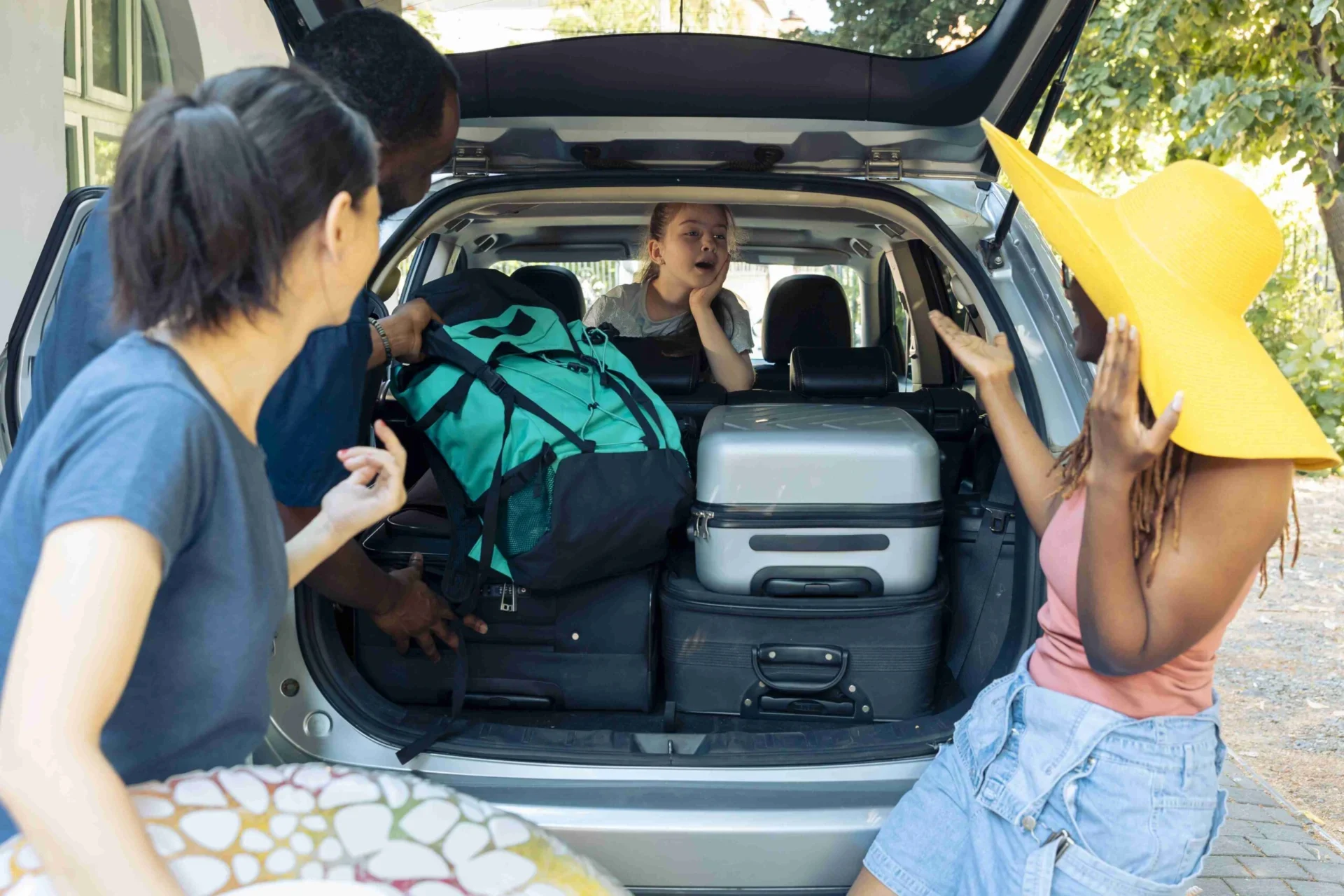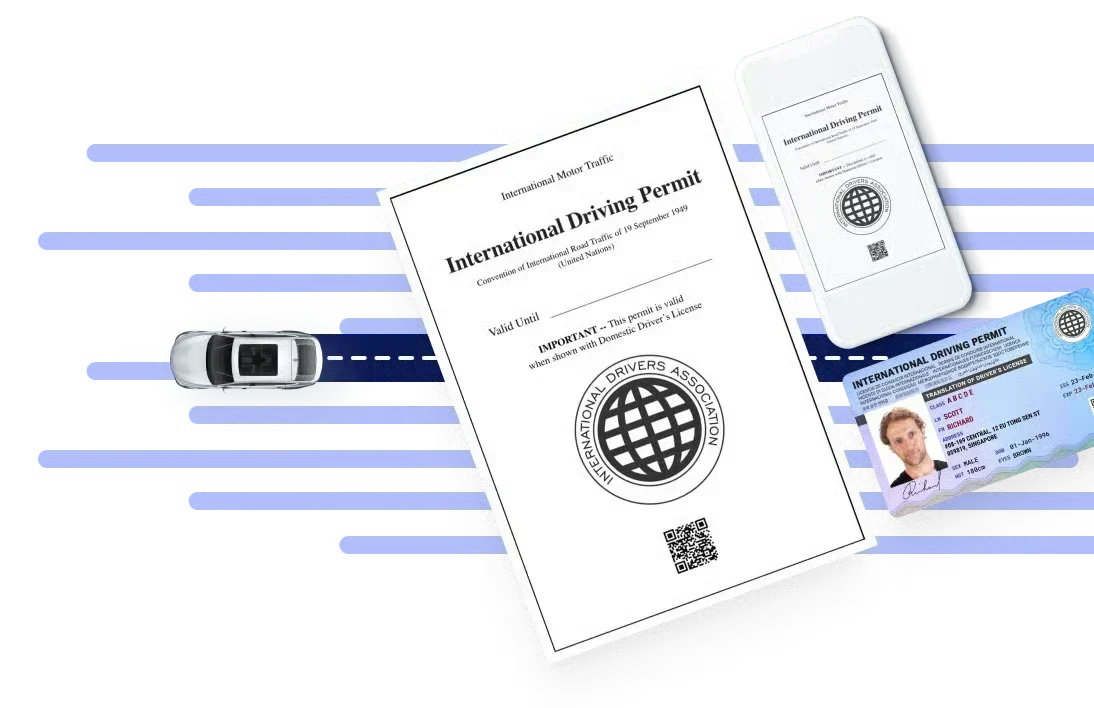Planning a holiday road trip can feel overwhelming, especially when trying to remember everything you need to pack. Trust me, we’ve been there—standing in the driveway, wondering if we’ve forgotten something crucial. That’s why we’ve put together this comprehensive guide to help make your packing process a breeze. Let’s get into everything you need for an amazing road trip experience!
Vehicle Essentials
Your vehicle needs to be equipped with crucial safety and emergency items before hitting the open road. These essentials form your first line of defense against common road trip mishaps.
Jumper Cables
Never underestimate the importance of a good set of jumper cables. Nothing is worse than being stranded with a dead battery, whether in a remote location or a busy parking lot. Get a high-quality set that’s at least 10 feet long, and make sure you know how to use them properly. They don’t take up much space but can be absolute lifesavers when needed.
Spare Tire & Jack
A full-sized spare tire, along with a properly functioning jack and lug wrench, is absolutely crucial. Don’t just assume your spare is in good condition—check its pressure and condition before your trip. Make sure everyone in your traveling group knows where these items are stored in the vehicle and understand how to change a tire if necessary.
Tire Inflator
A portable tire inflator can be the difference between a minor inconvenience and a major disruption to your travel plans. Look for one that plugs into your car’s 12V outlet and can handle standard and high-pressure tires. It’s perfect for maintaining proper tire pressure during long trips or handling slow leaks until you can reach a proper repair facility.
First Aid Kit
Your first aid kit should be comprehensive but compact. Stock it with bandages of various sizes, gauze pads, medical tape, antiseptic wipes, scissors, tweezers, and common over-the-counter medications like pain relievers and antihistamines. Remember to include any specific medical supplies that your travel group might need.
Emergency Kit
A well-stocked emergency kit should include items like road flares or LED emergency beacons, a powerful flashlight with extra batteries, a reflective warning triangle, and a whistle for attracting attention if needed. Consider adding a small fire extinguisher and basic tools like screwdrivers and pliers too.
Important Documents
An International Driving Permit (IDP) is essential for international travel. This UN-regulated document translates your driver’s license into different languages and is recognized in over 150 countries. You can easily obtain your IDP online, so it isn’t much of a hassle. Remember to carry both your IDP and regular driver’s license while driving abroad.
Comfort Items
Making your vehicle a comfortable space is essential for long hours on the road. These items will help transform your car into a cozy traveling haven.
Blankets and Pillows
Quality travel pillows and soft, compact blankets are worth their weight in gold during long drives. Choose pillows that provide good neck support and warm blankets that don’t take up too much space. These aren’t just for sleeping—they’re perfect for making rest stops more comfortable or dealing with arctic-levels air conditioning.
Sunglasses
A good pair of polarized sunglasses is essential for safe and comfortable driving. Pack a spare pair and make sure they’re easily accessible. Consider having options for different lighting conditions—bright daylight versus overcast weather can require different tints.
Snacks and Cooler
Invest in a good-quality cooler that fits your vehicle’s available space. Look for one with good insulation and separate compartments for drinks and perishable snacks. Having an organized snack system helps prevent unnecessary stops and saves money on expensive convenience store purchases.
Entertainment
Download plenty of entertainment options before your trip, such as audiobooks, podcasts, and a variety of music playlists. Traditional entertainment options like car games or travel-sized board games can give you a break from screens and audio. These are especially important if you’re traveling with kids.
Hydration and Food Supplies
Staying well-nourished and hydrated during your road trip is crucial for maintaining energy levels and good spirits. A well-planned food and drink strategy can save time, money, and unnecessary stops.
Reusable Water Bottles
Invest in high-quality insulated water bottles that can keep drinks cold for hours. Choose bottles with secure lids to prevent spills, and consider getting different sizes—larger ones for longer stretches between stops and smaller ones for easy handling while driving. Having at least one bottle per person, plus a spare, is a good rule of thumb.
Non-perishable Snacks
Stock up on nutrient-rich snacks that won’t melt or spoil easily. Trail mixes, granola bars, dried fruits, and nuts are perfect options that can give you energy all day. Pack these in resealable containers or bags for easy access and to maintain freshness throughout your trip. Divide these into individual portions to avoid the mess of sharing from larger bags.
Portable Coffee Maker or Thermos
For coffee lovers, a good thermos or portable coffee maker is a game-changer. If using a thermos, preheat it with hot water before filling it with coffee to maintain the temperature longer. If you’d like a portable coffee maker, choose one that’s compatible with your vehicle’s power supply and easy to clean on the go.
Personal Hygiene and Health
Maintaining personal hygiene on the road helps everyone stay comfortable and fresh throughout the journey. A well-planned hygiene kit can make a big difference in your travel experience.
Toiletries
Create a comprehensive but compact toiletry kit with travel-sized versions of your essentials. Include toothbrushes with covers, toothpaste, deodorant, facial wipes, and dry shampoo. Consider adding a face mist or cooling towelettes to refresh yourself, especially during hot weather.
Hand Sanitizer
Keeping multiple bottles of hand sanitizer within easy reach—one for each door pocket is ideal. Choose ones with moisturizing ingredients to prevent dry hands from frequent use. Consider sanitizing wipes as well, which can be more effective for cleaning surfaces.
Medications
Create a well-organized medication kit with both prescription and over-the-counter medicines. Include pain relievers, anti-nausea medication, allergy pills, and any other medicines needed by your group. Keep a list of everyone’s medical conditions and medication schedules.
Clothing
Smart clothing choices can make or break your road trip comfort. Planning for various weather conditions and activities is essential for a successful journey.
Layered Clothing
Pack versatile clothing pieces that can be easily layered. Include lightweight base layers, midweight sweaters or hoodies, and a warm jacket. Choose fabrics that are wrinkle-resistant and are comfortable for long periods of sitting. Consider packing one outfit per day, along with two extra sets, just to be sure.
Comfortable Footwear
Bring at least two pairs of comfortable, broken-in shoes. Include one pair of sturdy walking shoes for exploring and one pair of easy-to-slip-on shoes for quick stops. Consider packing flip-flops for rest stops and hotel use.
Rain Gear
Pack compact rain gear, like a lightweight, packable rain jacket with a hood. Consider bringing small umbrellas and waterproof shoe covers if you still have space in your bag.
Winter Gear
If you’re traveling during winter months or to cold destinations, proper winter gear is crucial for safety and comfort. Pack insulated, waterproof boots with good traction, thermal base layers made of moisture-wicking materials like merino wool, and a heavy-duty winter coat.
Don’t forget warm accessories like gloves, scarves, and winter hats. Consider packing hand warmers and extra blankets for emergencies. For extreme winter conditions, include ice cleats that can be attached to your boots and snow pants so you can carry on with your outdoor activities.

Source: Image by DC Studio on Freepik
In our digital age, having reliable navigation tools is crucial for a smooth journey. A combination of digital and traditional navigation methods ensures you’ll never lose your way.
GPS Device or Smartphone with Offline Maps
Ensure your GPS device is updated with the latest maps before departure. For smartphones, download offline maps of your entire route plus surrounding areas. Install a car phone mount for safe and easy navigation viewing.
Physical Maps
Keep paper maps or a road atlas as backup. Mark your planned route and potential alternates. Familiarize yourself with major highways and landmarks along your route before departing.
Miscellaneous Items
These often-overlooked items can make a significant difference in your travel experience. While they might seem minor, they can prove invaluable during your journey.
Trash Bags
Pack several small trash bags for daily use and a few larger ones for emergencies. Consider keeping one bag accessible for immediate use and others stored for later. Small plastic bags are also useful for wet clothes or for protecting electronics.
Cash
Keep an emergency cash fund hidden in your vehicle. Include a mix of bills for various situations—smaller denominations for quick purchases and larger ones for emergencies. Consider dividing cash between different locations in the vehicle.
Camera or Smartphone for Photos
Ensure your camera or phone is fully charged and has plenty of storage space. Pack charging cables and portable power banks. Bring a small tripod for group photos and scenic shots.
In Conclusion
Remember, successful road trip packing is about finding the right balance between being prepared and not overloading your vehicle. Organize items logically, keep essentials easily accessible, and ensure everyone in your group knows where important items are located. Happy travels!
Frequently Asked Questions
How far in advance should I start packing for a road trip?
Start packing at least 3-4 days before your trip. This gives you time to purchase missing items, check vehicle essentials, and ensure nothing is forgotten. For international trips, start preparing documents like your IDP at least 3-4 weeks in advance.
How can I maximize space in my vehicle when packing?
Use soft-sided bags instead of hard suitcases, utilize vacuum storage bags for clothing, pack items in clear containers for easy identification, and use the vehicle’s vertical space with hanging organizers. You can purchase a roof cargo box for longer trips.
What’s the best way to organize snacks and drinks for easy access while driving?
Use a front-seat organizer or console organizer for frequently accessed items. Pack snacks in individual portions using resealable bags, and keep a small cooler within reach of the driver and passengers.
What are some often-forgotten items that can make a big difference on a road trip?
Often-forgotten essentials include a small tool kit, spare car key, power bank, paper towels, wet wipes, plastic bags for trash/emergencies, air freshener, and a small first-aid kit for the glove compartment.







